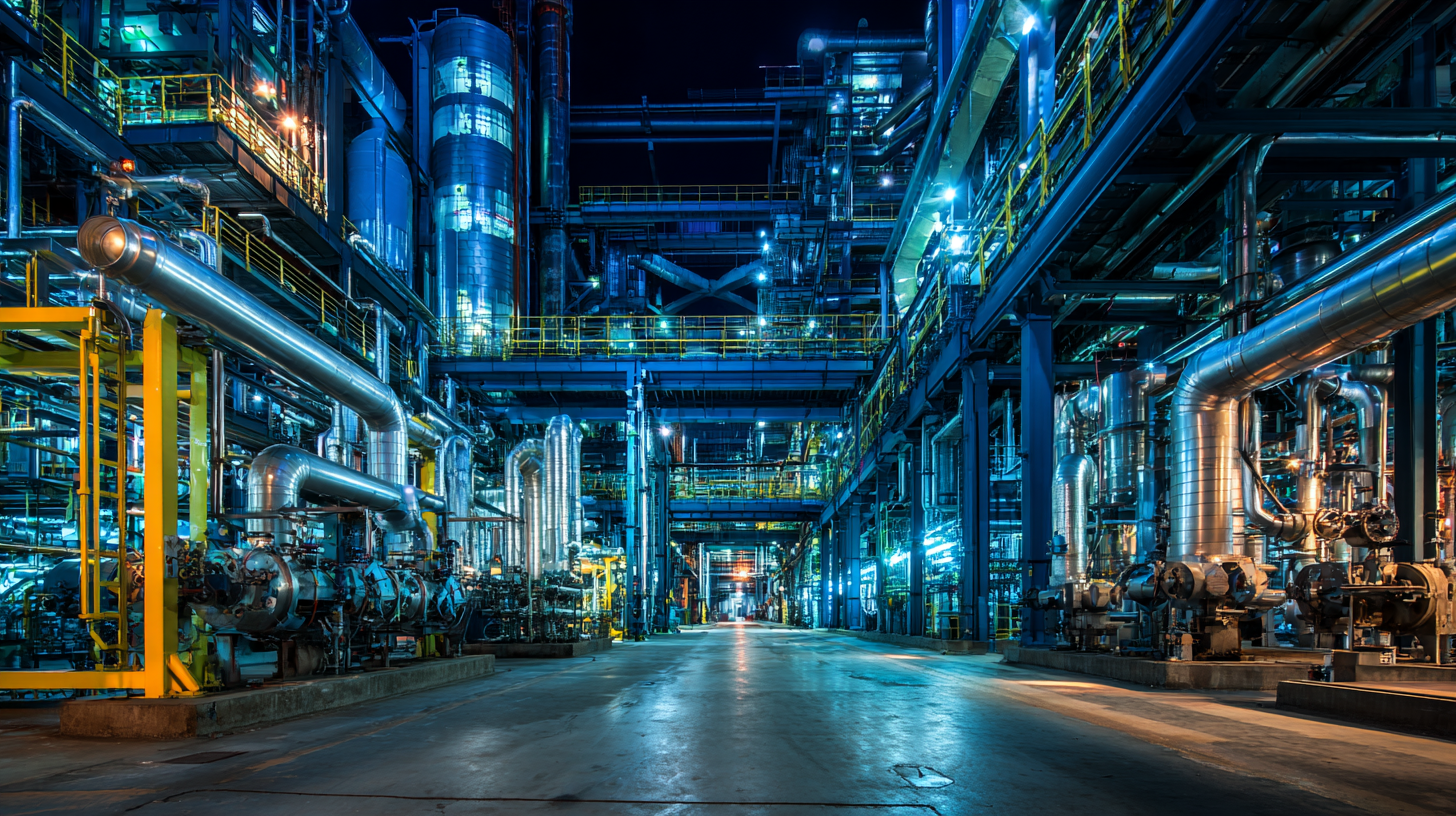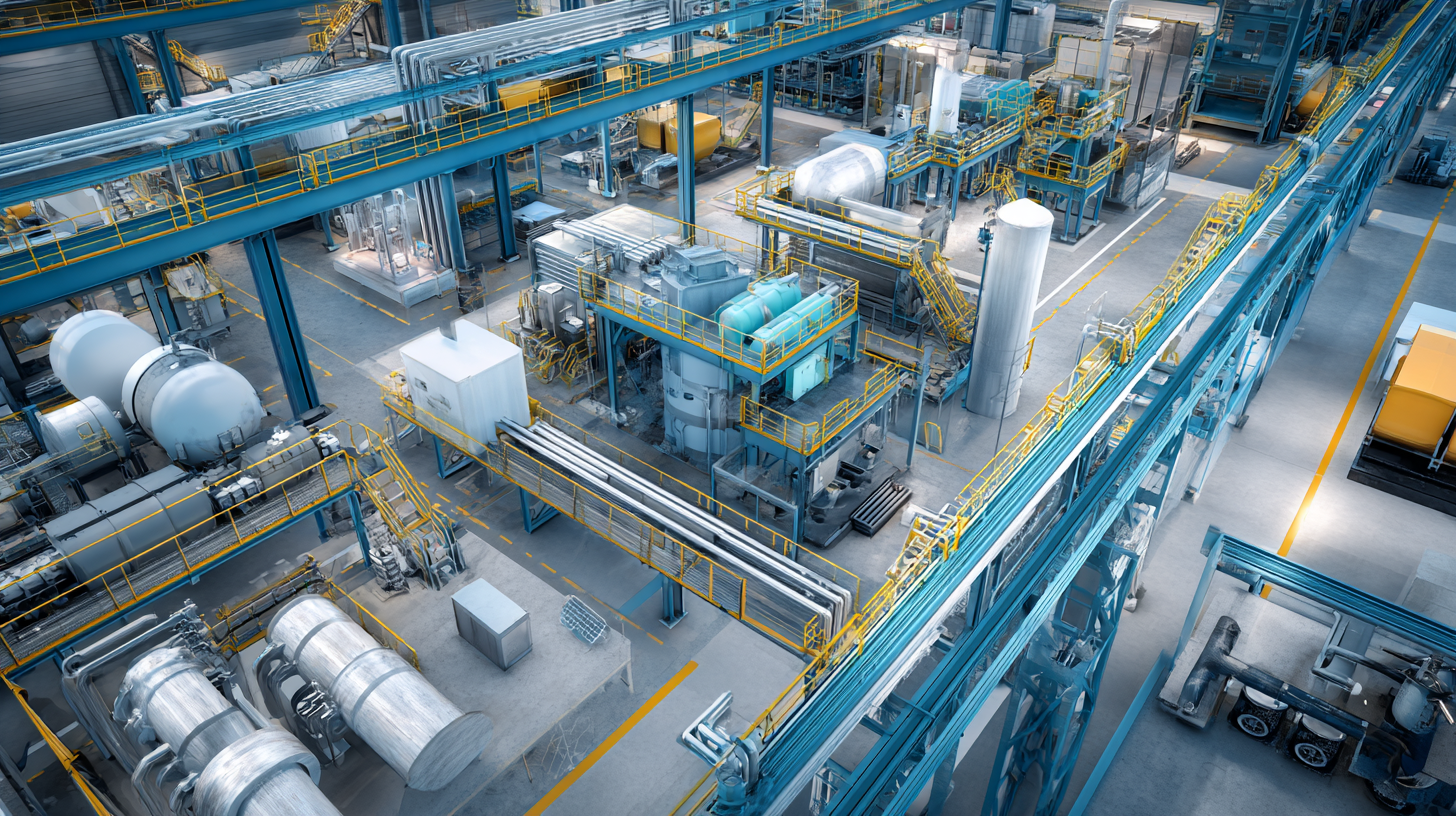
Careers
5 Industrial and Chemical Solutions Driving 60% Efficiency in Manufacturing
In the ever-evolving landscape of manufacturing, the pursuit of efficiency has become paramount, with industrial and chemical solutions at the forefront of this revolution. According to a report published by the International Energy Agency, advancements in these sectors can drive operational efficiency improvements by as much as 60% by 2025. This transformative potential not only boosts productivity but also contributes significantly to sustainability efforts within the industry.
As noted by Dr. Elena Martinez, a leading expert in industrial process optimization, "Harnessing innovative industrial and chemical solutions is crucial for manufacturers aiming to remain competitive in a fast-paced market." The integration of state-of-the-art technologies and sustainable practices can empower manufacturers to reduce waste, optimize energy consumption, and enhance overall process efficiency. In light of the growing emphasis on reducing environmental impacts, these advancements are not just beneficial but essential for the future of manufacturing.
The next few years will undoubtedly see a surge in the adoption of smart technologies, data analytics, and real-time monitoring systems, all guided by the principles of industrial and chemical solutions. As businesses strategize their path forward, the imperative to embrace these innovations will shape a new era of manufacturing excellence.

Innovative Automation Technologies Enhancing Manufacturing Efficiency
Innovative automation technologies are revolutionizing the manufacturing sector by significantly enhancing operational efficiency. By integrating advanced robotics, artificial intelligence, and machine learning, manufacturers can streamline production processes, reduce cycle times, and minimize human error. These technologies facilitate real-time monitoring of production lines, allowing for quick adjustments to be made in response to any inefficiencies. As a result, companies are experiencing unprecedented levels of productivity, as automated systems can operate continuously and consistently without fatigue.
Moreover, the implementation of smart sensors and IoT devices is enabling manufacturers to harness data more effectively. This data-driven approach allows for predictive maintenance, which not only extends equipment lifespan but also reduces unexpected downtime. Furthermore, automation technologies can optimize resource allocation and energy consumption, driving sustainable practices in manufacturing. As businesses embrace these innovative solutions, they are not only boosting efficiency but also positioning themselves to meet the ever-increasing demands of the global market.
Sustainable Chemical Solutions for Waste Reduction in Production
Sustainable chemical solutions are increasingly essential in modern manufacturing, particularly in the quest for waste reduction. By integrating eco-friendly chemicals and processes, manufacturers can significantly lower their environmental footprint. These solutions often involve the use of biodegradable materials, which not only minimize waste but also reduce reliance on toxic substances that can harm both the environment and human health. Innovations, such as green solvents and bio-based feedstocks, enable manufacturers to create high-quality products while adhering to stricter environmental regulations.

In addition to reducing waste, sustainable chemical solutions can lead to improved efficiency in production processes. For instance, the adoption of closed-loop systems allows for the recovery and reuse of materials that would otherwise end up in landfills. This approach not only conserves resources but also enhances overall productivity by streamlining operations. Furthermore, companies that invest in sustainable practices are often rewarded with cost savings, as efficient waste management reduces disposal expenses and lowers raw material costs. Overall, the integration of sustainable chemical solutions is a powerful strategy that can drive significant improvements in manufacturing efficiency while promoting environmental responsibility.
Advanced Materials Driving Performance and Cost Savings
Advanced materials play a pivotal role in enhancing performance and achieving cost savings in the manufacturing sector. By leveraging cutting-edge composites, manufacturers can achieve significant improvements in product durability and strength while also reducing overall material costs. These advanced materials are engineered to withstand extreme conditions, which not only extends the lifespan of products but also minimizes the need for frequent replacements, ultimately contributing to a more sustainable production cycle.
In addition to performance benefits, advanced materials facilitate streamlined manufacturing processes. Innovative solutions such as lightweight alloys and high-performance polymers enable faster production rates and reduce energy consumption during manufacturing. The integration of these advanced materials into production lines results in a more efficient workflow, leading to a notable increase in operational efficiency. This combination of performance enhancement and cost-saving strategies underscores the transformative impact of advanced materials on the manufacturing landscape, aligning with the industry's drive toward achieving 60% efficiency across various processes.
Real-Time Data Analytics for Optimizing Manufacturing Processes
The integration of real-time data analytics is revolutionizing manufacturing efficiency, driving notable improvements in productivity. The global IoT in manufacturing market is projected to grow significantly, starting from a valuation of $116.52 billion in 2024 to an anticipated $141.18 billion in 2025. This growth underscores the increasing reliance on data-driven solutions to optimize manufacturing processes, which are essential for achieving operational excellence.
In the context of manufacturing analytics, overall equipment effectiveness (OEE) serves as a key performance indicator, yet traditional metrics often fall short in accurately reflecting production efficiency. With the implementation of advanced data analytics, companies can gain critical insights into their operations and identify bottlenecks in real time. This proactive approach not only enhances productivity but also contributes to a more agile production environment, essential for meeting the dynamic demands of today's market.
 Moreover, the deployment of AI and 5G technologies further accentuates the potential of real-time data analytics in manufacturing. As 5G facilitates ultra-fast data transmission, manufacturers can leverage AI-driven solutions for predictive maintenance and quality control, significantly improving their yield and operational efficiency. The manufacturing analytics market is projected to reach $41.67 billion by 2034, highlighting the growing importance of these technologies in driving efficiency across the sector.
Moreover, the deployment of AI and 5G technologies further accentuates the potential of real-time data analytics in manufacturing. As 5G facilitates ultra-fast data transmission, manufacturers can leverage AI-driven solutions for predictive maintenance and quality control, significantly improving their yield and operational efficiency. The manufacturing analytics market is projected to reach $41.67 billion by 2034, highlighting the growing importance of these technologies in driving efficiency across the sector.
Energy Management Innovations Improving Operational Efficiency
Energy management innovations are transforming the manufacturing sector by significantly enhancing operational efficiency. According to a report by the International Energy Agency (IEA), industrial energy efficiency measures could lead to a potential reduction in energy consumption by up to 25% by 2030. This not only lowers operational costs but also supports sustainable practices, aligning with stricter environmental regulations and consumer demand for greener products.
One notable solution is the implementation of advanced energy monitoring systems, which allow manufacturers to identify inefficiencies in real-time. According to the U.S. Department of Energy, companies using such systems can achieve energy savings of 10-20% on average. Moreover, integrating smart grid technologies with conventional manufacturing processes fosters better demand-response strategies and enables plants to optimize their energy use based on real-time pricing. As a result, manufacturers are not only cutting costs but also enhancing their competitiveness in a rapidly evolving market.
5 Industrial and Chemical Solutions Driving 60% Efficiency in Manufacturing
| Solution | Efficiency Improvement (%) | Key Benefits | Implementation Time (Months) |
|---|---|---|---|
| Advanced Energy Management Systems | 25% | Real-time monitoring, reduced energy costs | 6 |
| Chemical Recycling Technologies | 15% | Minimized waste, enhanced sustainability | 12 |
| Automation and Robotics | 30% | Increased precision and speed | 8 |
| Process Optimization Software | 20% | Improved process flows, reduced downtime | 4 |
| Smart Grid Integration | 10% | Enhanced energy distribution, real-time analytics | 18 |



